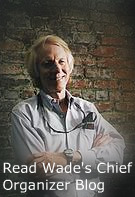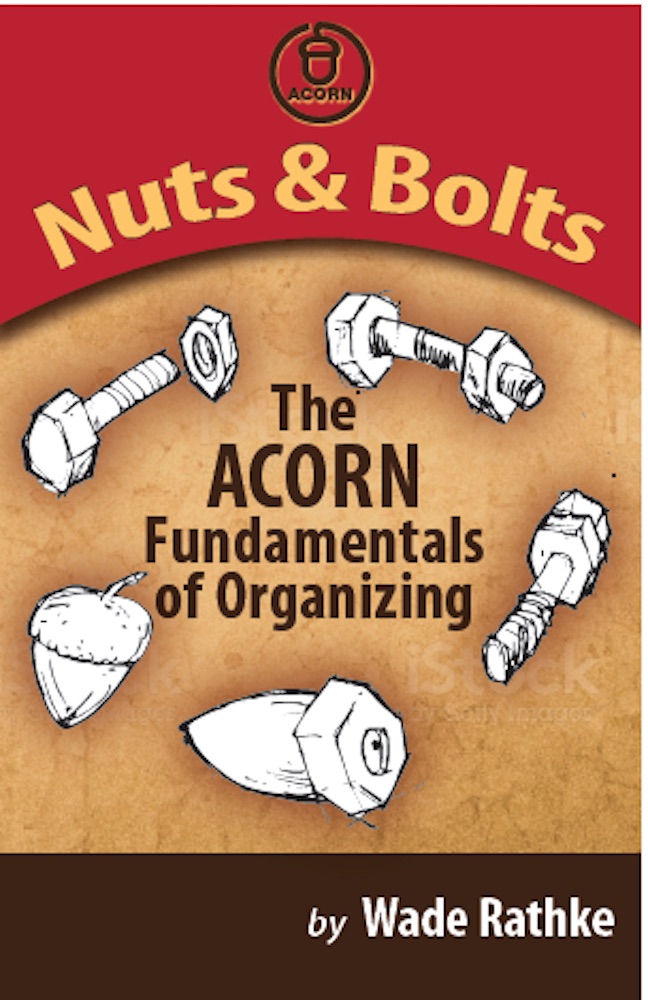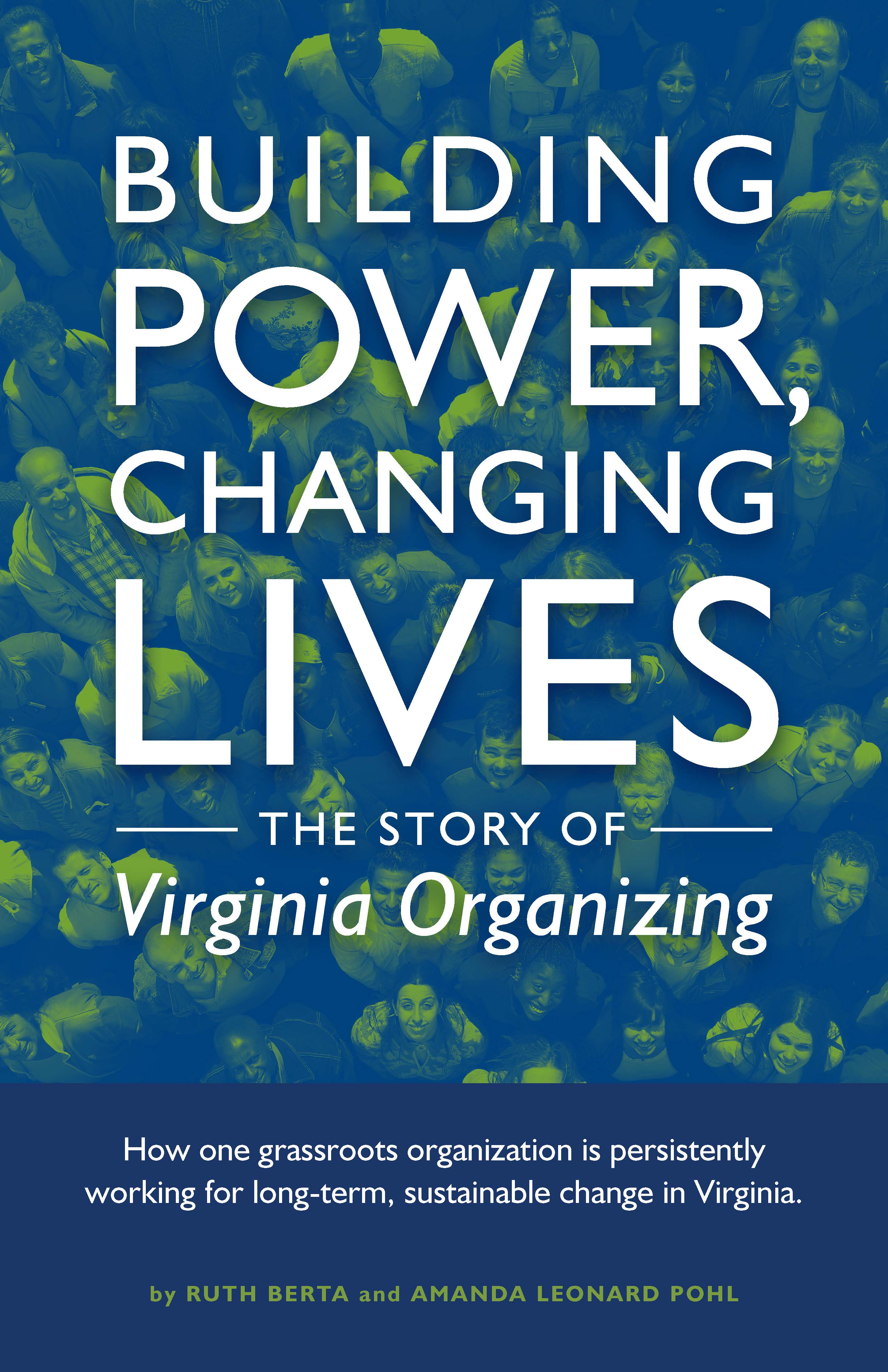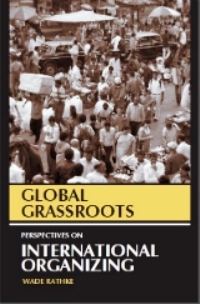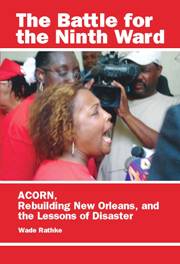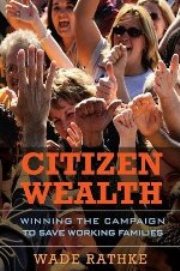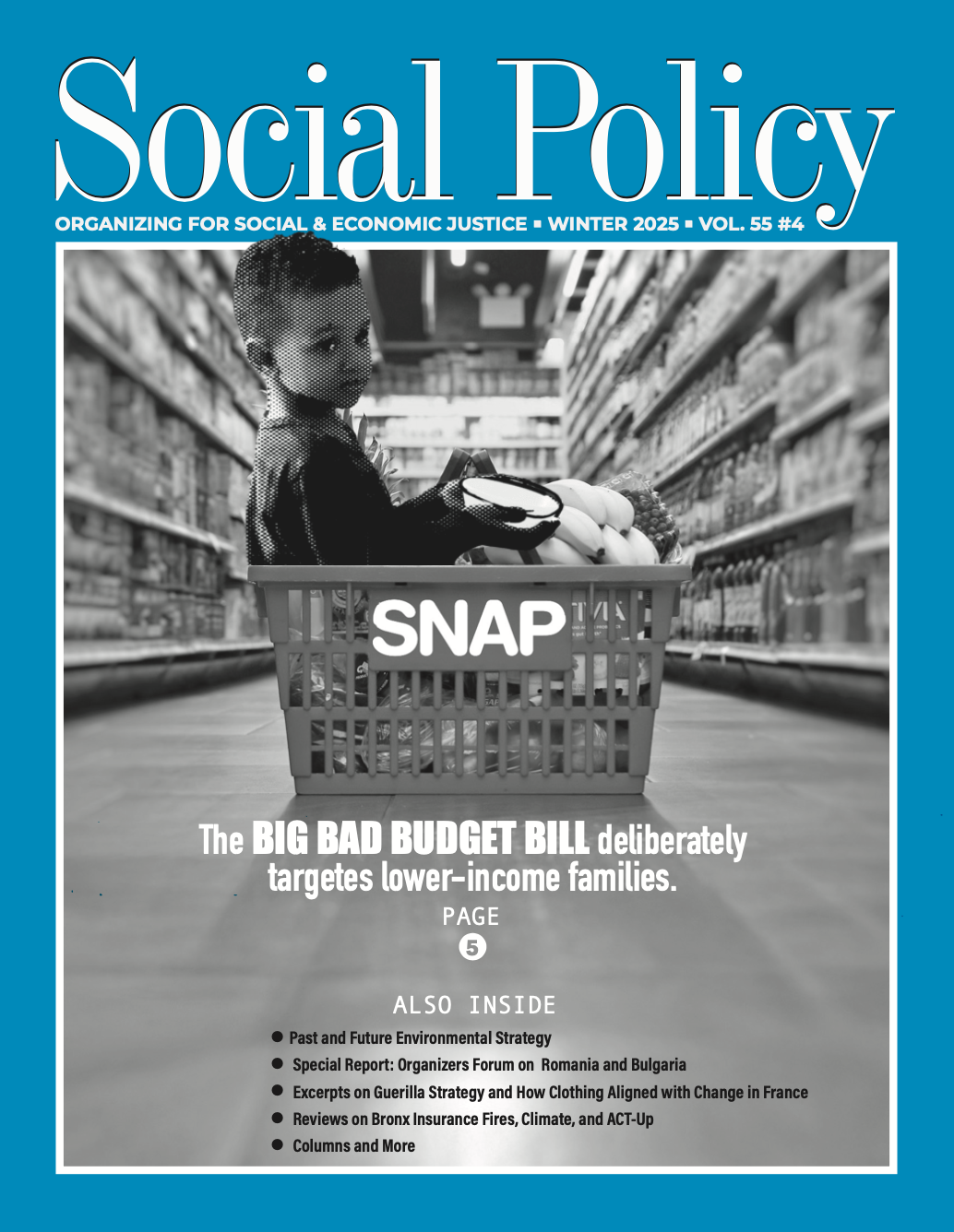Wall Street & Our Campaign to Decriminalize Immigrants

*** Below is a special note from Social Policy Pubisher Wade Rathke***
Peter Cervantes-Gautschi’s article, Wall Street & Our Campaign to Decriminalize Immigrants from the Winter issue of Social Policy has been named the 5th most censored story of 2010-2011 by Project Censored.
Normally when a new issue of Social Policy comes out, the articles from the previous issue moves behind a subscription wall - but in the case of this article, we’ve decided to make it free-feature on the front page of SocialPolicy.org.
We’re proud of Peter and honored to be part of getting the story out. We’re also thankful for your support that allows Peter’s voice to be heard because readers and subscribers have made Social Policy a magazine that matters.
Enjoy the read!
Wade Rathke, Publisher
Social Policy
Over the past four years roughly a million immigrants have been incarcerated in dangerous detention facilities in our taxpayer-financed private prison system. Children were abused, women were raped, and men died from lack of basic medical attention.
Corrections Corporation of America (CCA), based in Nashville, Tennessee, and the GEO Group, a global corporation based in Boca Raton, Florida, the nation’s two largest companies that design, build, finance and operate prisons, are principal moving forces in the behind-the-scenes organization of the current wave of anti-immigrant legislative efforts which, if successful, would dramatically increase the number of immigrant prisoners in over twenty states.
A little over a year after its October 2003 success in securing the contract to run GITMO (the Guantánamo Bay Detention Camp) in Guantanamo Bay, Cuba, GEO hired the services of lobbyists who had recently held influential positions with the U.S. Department of Homeland Security, Bureau of Prisons, Office of the Attorney General, and then Senate Majority Leader George Mitchell to lobby their former employers and Congress. Through 2005 and leading up to the largest immigration raid in U.S. history in December 2006, GEO and CCA spent a combined total of over $6 million on these lobbying efforts.
On May 1, 2006, while GEO and CCA were lobbying the federal government for more business, millions of people marched in favor of immigrant rights in 102 cities across the country. The marchers, despite their historic numbers, turned out to be an insufficient barrier to the government’s support of GEO’s and CCA’s business plans. This single change in enforcement of existing law created a potential of over ten million new felons, thereby multiplying the lucrative incarceration market for the private prison industry many times over, and sending a shock wave through immigrant-related communities across the country. The December 2006 raid, in which over a thousand men and women employed at Swift meat-packing plants in several states were detained, marked a change in the federal government’s enforcement of the 1995 immigration law. For the first time, many of those picked up were charged with crimes that carry long prison sentences.
At the time of the Swift raid, USA Today quoted the Reverend Clarence Sandoval of St. Thomas Aquinas Catholic Church in Logan, Utah, as saying, "They are taking mothers and fathers and we're really concerned about the children. I'm getting calls from mothers saying they don't know where their husband was taken."
Soon after the Bush Administration implemented this change in law enforcement affecting immigrants, Wall Street advisors publicly recommended buying stock in private prison companies like CCA and GEO. At the time, Vice President Dick Cheney was heavily invested in Vanguard, one of a handful of major shareholders in GEO.
The lobbying paid off for both companies in huge revenue increases from government contracts to incarcerate immigrants. From 2005 through 2009, for every dollar spent on lobbying the federal government, GEO received a $662 return in taxpayer-funded contracts, for a total of $996.7 million. CCA received a $34 return in taxpayerfunded contracts for every dollar spent on lobbying the federal government, for a total of $330.4 million. In addition, both companies increased revenues over the same period from detention facility contracts with a number of states.
In 2007 the Immigration and Customs Enforcement Agency (ICE) conducted 30,407 immigration raids in workplaces, neighborhoods, and public gathering sites such as bus stops and commuter train platforms. The number of raids conducted that year was double the 2006 total. The number of immigrants placed behind bars, for what amounts to the crime of having been born in the wrong place, increased from 256,842 in 2006 to 311,169 in 2007.
As a result of fear induced by the raids and other factors, pro-immigrant May Day marches in 2007 were much smaller than those of the previous year. In mid-2007, while many organizers were focused on legislation, marches, and raids, GEO and CCA shareholders reaped a huge profit. Both companies issued 2-for-1 stock splits that roughly doubled the value of their shareholders’ stake in the two companies.
Although stockholders profited handsomely as revenues from prison contracts rose for both companies, the increase was not large enough to satisfy some of their respective major shareholders. JPMorgan Chase, a major owner of GEO, dumped its stock and relinquished a leadership position in the company.
One problem for investors seeking huge gains from the for-profit prison business was that revenue rates could not keep rising because federal agencies did not have enough personnel to arrest and process more immigrants than the expanded number they were now handling. It became apparent that the only way to raise revenue significantly through increasing the numbers of people picked up, detained, and incarcerated was to hire more law enforcement personnel. The private prison industry now needed a new source of low-cost licensed law enforcement personnel. The new focus of business expansion for CCA and GEO apparently then became state governments.
The result of this shift in business focus is exemplified by CCA’s role in Arizona’s SB 1070 and both CCA’s and GEO’s roles in other legislative efforts aimed at dramatically increasing the arrest numbers for undocumented immigrants in over twenty states. Arizona’s Governor Jan Brewer, who received substantial campaign financing from top CCA executives in Tennessee and employs two former CCA lobbyists as top aides, signed SB 1070 into law on April 23rd.
On Friday, July 30, 2010, the Republican Governors Association, which so far this year has received over $160,000 in contributions from CCA, GEO, and their lobbyists, sent out a nationwide solicitation written by Arizona Governor Jan Brewer requesting contributions to fund an appeal of the partial injunction issued by a judge against SB1070.
In addition to funds raised by the partisan appeal, Brewer’s legal effort has been bolstered by supporting briefs filed with the appeals court by three states that have contracts with GEO or with both GEO and CCA. The two prison companies are currently ramping up their political involvement in these states and in several others that have anti-immigrant bills moving through their respective legislatures. In all, twenty states are considering SB 1070 inspired bills which have been endorsed by their respective Republican gubernatorial candidates, who are in large part financed by the Republican Governor’s Association.
CCA and GEO are owned by major Wall Street institutions that profit from the immigrant incarceration business. The United States now has more people in prision than any other country on earth. Last November, CCA’s top management in Tennessee contributed the largest block of out-of-state campaign contributions received by Arizona Governor Jan Brewer. CCA, which already has several detention facilities in Arizona and is hoping to expand its immigrant prison business in that state, is expected to show a huge increase in revenues when SB 1070 is implemented. Brewer’s administration, in a gesture welcomed by armed white supremacist vigilante groups aligned with notorious Sheriff Joe Arpaio, recently implemented a law allowing concealed weapons to be carried in public. Both CCA and GEO, which rely almost exclusively on revenue from tax dollars at local, state, and federal levels, profited from the incarceration of immigrants apprehended by U.S. Immigration and Customs Enforcement (ICE) in 2006, after the Bush Administration changed the charge for working without a proper social security number from a misdemeanor violation with a short jail sentence to a felony violation carrying a long prison sentence.
The change in how federal law is enforced increased the market of potential immigrant inmates for CCA and GEO by more than ten million people that the government would pay to have housed, transported, and fed. CCA’s and GEO’s share of the immigrant incarceration business has grown substantially since 2006. Today, for example, anyone picked up by ICE in Los Angeles is sent to a CCA facility in San Diego, while those picked up by ICE in Seattle or Portland, OR, are sent to a GEO facility in Tacoma because detention facilities owned and operated by the federal government are at 137% of capacity. The most powerful investor in CCA is a hedge fund, Pershing Square, which is run by Wall Street investment guru activist investor, Bill Ackman. Ackman also plays a powerful role in Target Corporation and Kraft Foods. Wells Fargo is the most powerful investor in GEO. Other major investors with the power to influence management in one or the other of the two companies are Vanguard, Lazard, Scopia, Wellington Management, FMR (Fidelity), and Bank of America. Each of these major owners is sensitive to public opinion in one way or another.
None of these major investors needs to rely on either CCA or GEO to make money. By almost any measure, the increased number of deportations of immigrants has not had the desired effects on anyone other than the private prison industry. Unemployment among native-born citizens in the U.S. has skyrocketed even as the number of immigrants being deported has risen to over 400,000 a year. At over two million, the U.S. has a half million more people behind bars than China, which has the second highest number of prisoners among the nations of the world. One would like to think that bringing this information to Congress’s attention would be enough to compel them to abandon policies that criminalize immigrants. However, that is not likely to happen soon.
This probable hesitation for Congress to act is not merely because of the substantial campaign contributions that Senators and members of Congress receive from the private prison industry. Most members of Congress have personal investments in one or more of CCA’s or GEO’s major shareholders. While it is true that many people are invested in CCA or GEO through their pensions without knowing it, the reports on the personal finances of some key members of Congress suggest some of them have more than a casual interest in the fortunes of CCA or GEO.
Senator Enzi, a senior Republican who sits on the Senate Budget Committee, was awarded a 100% approval rating by U.S. Border Control, which describes itself as “a non-profit, tax-exempt, citizen's lobby. USBC is dedicated to ending illegal immigration by securing our nation's borders and reforming our immigration policies.”
Compelling Congress to abandon immigrant criminalization policies is probably going to require, among other things, that we convince some combination of our pension funds, Wells Fargo, and a hedge fund or two pull out of the private prison industry and to go elsewhere to make money. Who knows? Some of these financial institutions might even see the wisdom in investing in companies that produce family wage jobs. Peter Cervantes-Gautschi, Co-Director of Enlace, has been a labor activist since 1965, starting as a farmworker in California. He has organized for HERE, SEIU, and CWA, headed two labor councils, started two low-wage worker organizations, and co-founded several labor-community coalitions, membership organizations, and political action committees.

